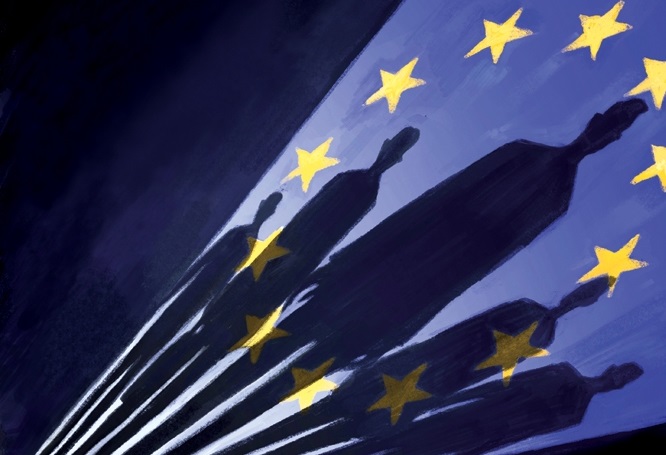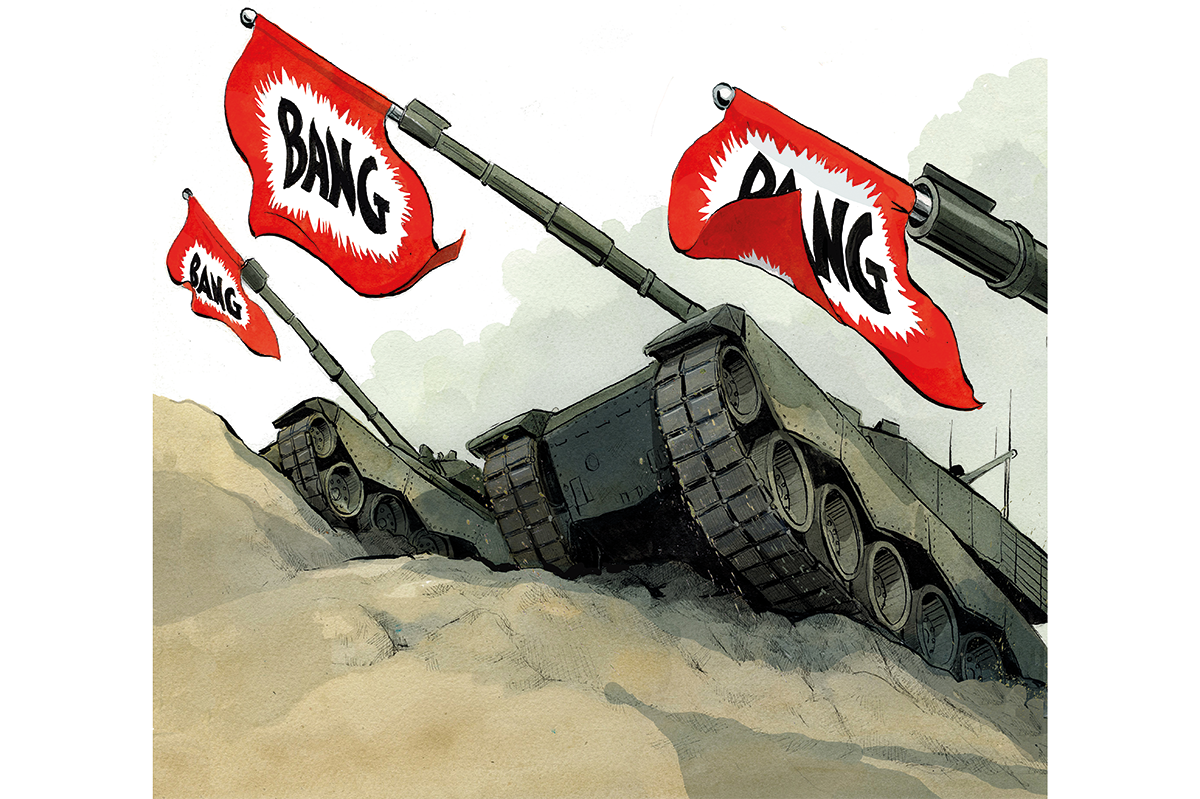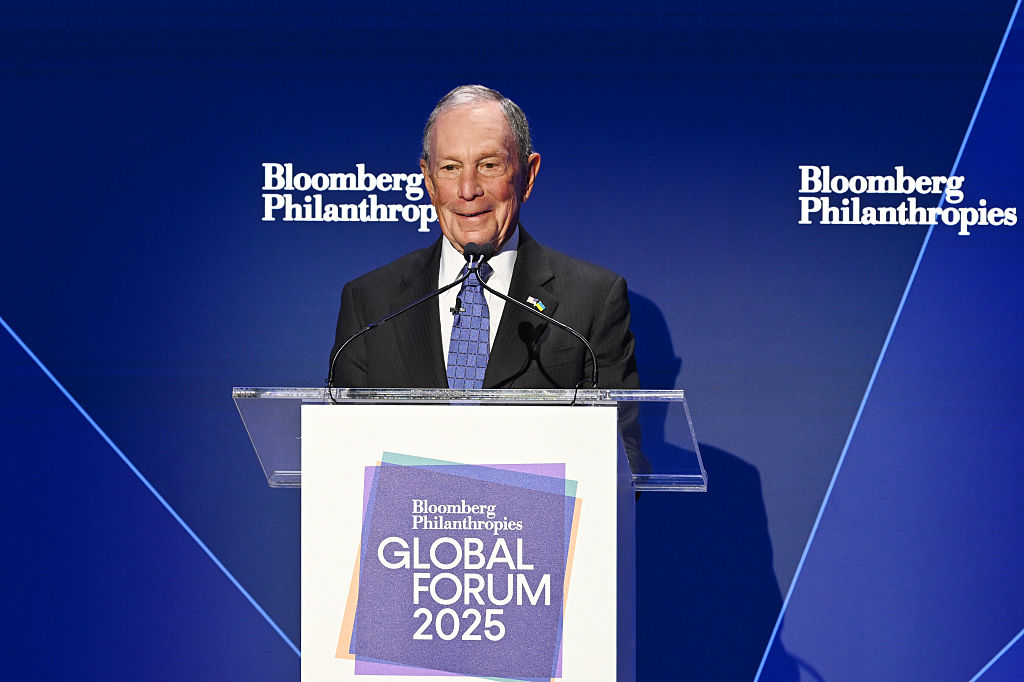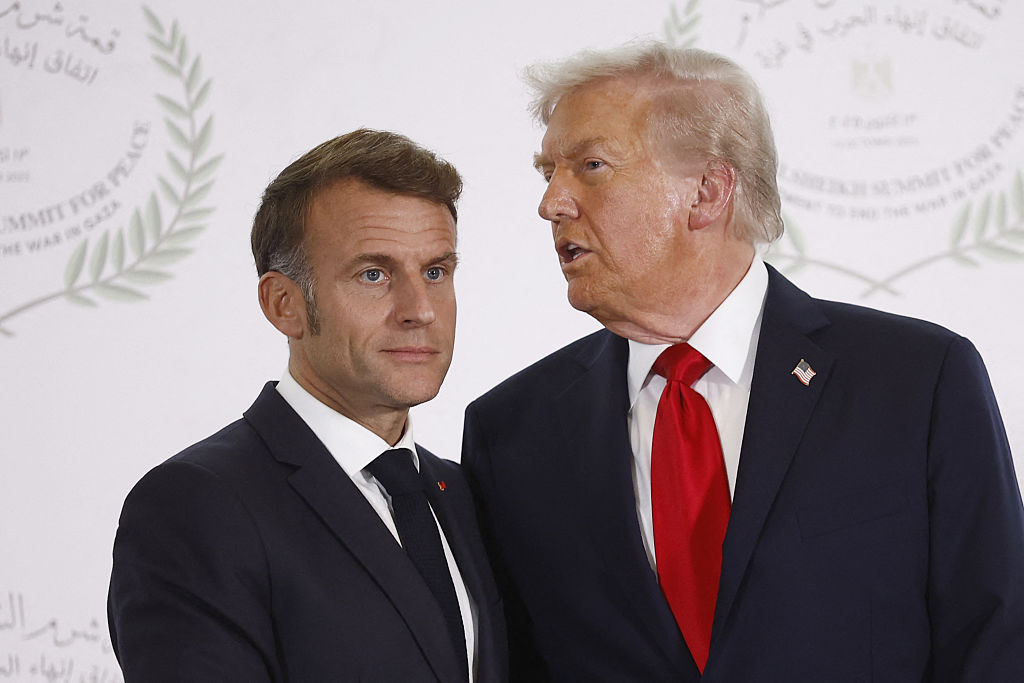Last Friday, America announced sanctions against Bidzina Ivanishvili, a Georgian tycoon who made his fortune in Russia in the 1990s. Secretary of State Antony Blinken said he was imposing the punishment because Ivanishvili’s Georgian Dream Party was “undermining the democratic and Euro-Atlantic future of Georgia for the benefit of the Russian Federation.”
Georgian Dream triumphed in October’s parliamentary elections and on Sunday a new president, allied to the party, was sworn in as street protests take place in Tbilisi.
Might the ‘lawfare’ that eliminated Georgescu from Romania’s presidential election also be deployed against Marine Le Pen this spring?
The West claims that it was not a free and fair election, a view shared by Ivanishvili’s political opponents in Georgia. One, Nika Gvaramia, has likened the election to a “constitutional coup.”
In response to the election result, the EU adopted a resolution in which it rejected the election result and demanded a re-run within a year. Brussels said the elections represented “yet another manifestation of the continued democratic backsliding of the country.”
If events in Georgia — which is an EU candidate nation — are troubling, so are those in Romania, where one might argue there has also been a “constitutional coup” of late.
On December 23, while most of the West’s attention was focused on Christmas festivities, Romanian president Klaus Iohannis reappointed Marcel Ciolacu as prime minister.
This is quite some transformation in the fortunes of the Social Democrat Ciolacu. A few weeks ago he was soundly beaten in the first round of Romania’s presidential election, relegated to third place behind Calin Georgescu and the center-right candidate Elena Lasconi of the Save Romania Union.
Georgescu’s victory shocked the West. Described by the BBC as a “far-right, pro-Russia candidate,” he campaigned under the slogan “restore the dignity of the Russian nation.”
Politico interviewed Georgescu shortly before the second round of the presidential election, and he spoke of his determination to curtail the influence of multinationals in Romania that he said were prospering to the detriment of the people.
Politico said Georgescu’s victory in the first round of the election was “bound to sound alarm bells in Brussels” because of his hostility towards foreign investors and the EU. This alarm deepened when opinion polls reported that Georgescu was on course to triumph in the second round on December 8.
Georgescu denied the idea that Russia had somehow manipulated the result of the election. “It’s the same thing they said about [Donald] Trump,” he told Politico. “It’s useless. They don’t realize that the people can have the voting power. People have been used to: ‘Your vote doesn’t matter.’ Well, it mattered.”
It transpired that it didn’t matter quite as much as Georgescu assumed.
On the eve of the second run off between Georgescu and Lasconi the result of the first round was annulled after outgoing President Klaus Iohannis accused the winning campaign of being supported by Russia. The constitutional court made their decision after examining declassified intelligence documents that noted the activation of some 800 TikTok accounts shortly before Romanians went to the polls. These were attributed to Russia and, while there was no evidence of voting irregularities in the election itself, the fact that a hostile state might have been trying to influence voters on social media was enough for the result to be annulled.
As the BBC remarked, the court’s decision was “a complete about-turn from a decision four days before that approved the initial November 24 vote after a complete recount of 9.4 million votes.”
Georgescu responded by describing himself as a victim of a “coup d’etat” perpetrated by a “corrupted regime.”
To date the State Department has not imposed visa restrictions on any Romanian officials for undermining democracy. Nor has the EU parliament passed a resolution condemning “democratic backsliding.”
Institutions such as Emerging Europe, which describes itself as a “policy and management advisory,” expressed relief at the annulment. In an article a Bucharest lawyer Claudia Postelnicescu, who has ties with the European Commission, wrote: “We are witnessing only the beginning of what may be labeled ‘lawfare’ when, based on interpretation of the constitutional norms, Constitutional courts in Europe will take it upon themselves to salvage, preserve and maintain democracy and the rule of law.” Postelnicescu justified this “lawfare” by saying that Europe is in an “era of hybrid war with Russia.”
Since Russia invaded Ukraine in 2022, Romania has been a key ally of Kyiv and the two countries signed a ten-year security agreement earlier this year. Furthermore, Romania, which shares a 400 mile border with Ukraine, has become a vital conduit to global markets for Ukrainian grain. Romania also has never been as strategically important to NATO as it its now. Calin Georgescu has praised Vladimir Putin as a leader who “loves his country” and also denounced Ukraine as an “invented state.” He denies he is pro-Putin but with Georgescu as president, Romania might not have been quite so staunch in its support for Ukraine.
Might the “lawfare” that eliminated Georgescu from Romania’s presidential election also be deployed against Marine Le Pen this spring? The leader of the Rassemblement National in France will discover on March 31 whether she will be precluded from running for president in the 2027 election. Prosecutors in Paris have demanded that she be barred from politics for five years for misusing EU funds over a period of years.
Le Pen’s supporters claim it is a political witch hunt and she accuses the prosecutors of seeking her “democratic death.”
The month before Le Pen learns her fate, German voters will go to the polls to elect a new chancellor and the AfD is expected to do well. Having triumphed in September’s state election in Thuringia, winning almost a third of the vote, the AfD is the party most likely to prosper electorally from last week’s terror attack in Magdeburg that left five dead and scores injured.
AfD’s victory in Thuringia prompted a backlash from other political parties in Germany. In October a cross-party group of 113 centrist members of parliament launched a campaign to outlaw the AfD. “German democracy is in danger because the AfD is an anti-constitutional party that is reaching for power and has a realistic chance of gaining it,” said Carmen Wegge of the center-left SPD.
One might counter that German democracy is endangered more by politicians who seek to ban an opponent because they find their popular ideas disagreeable. Isn’t that what happens in dictatorships and regimes such as the one in Putin’s Russia?
As Friedrich Nietzsche said: “He who fights with monsters might take care lest he thereby becomes a monster.”

























